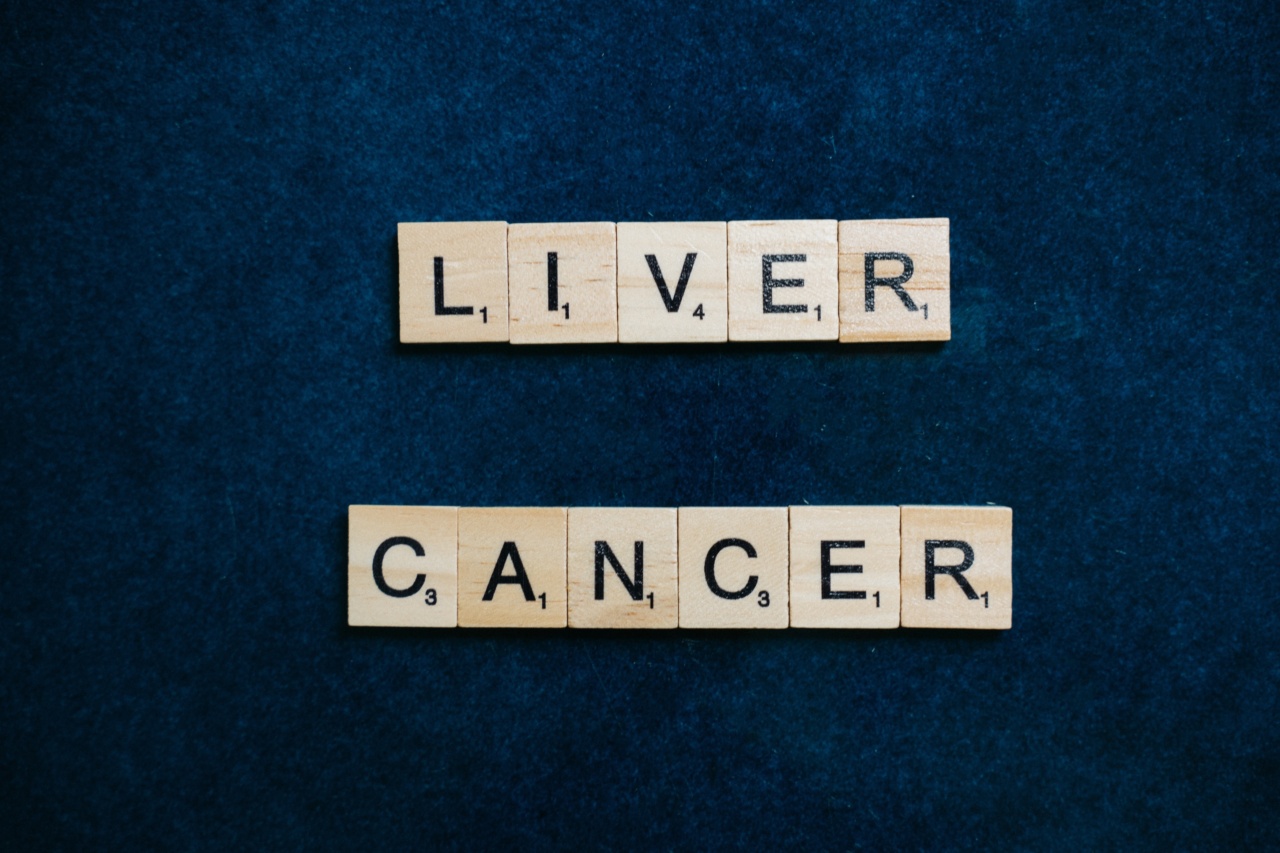The liver is one of the most important organs in our body. It plays a vital role in our digestion, metabolism, and detoxification. Unfortunately, it is also one of the most commonly affected organs when it comes to cancer.
Liver cancer, also known as hepatic cancer, arises from the abnormal growth and division of cells in the liver. It is the sixth most common cancer worldwide and the third leading cause of cancer-related deaths globally.
Types of Liver Cancer
There are two main types of liver cancer:.
Hepatocellular carcinoma (HCC)
HCC is the most common type of liver cancer, accounting for about 75% of all cases. It arises from the main type of liver cells called hepatocytes. HCC is usually linked to chronic liver diseases, such as cirrhosis, hepatitis B, and hepatitis C.
Intrahepatic cholangiocarcinoma (ICC)
ICC accounts for about 15% of liver cancer cases. It arises from the cells that line the bile ducts inside the liver. Unlike HCC, ICC is not linked to chronic liver diseases and can develop without any obvious risk factors.
Risk Factors
Several factors can increase your risk of developing liver cancer:.
Chronic liver diseases
Long-term liver damage, such as cirrhosis, hepatitis B, and hepatitis C, can increase your risk of developing liver cancer. The liver cells are constantly regenerating and repairing themselves to maintain their function.
However, with chronic liver diseases, the liver cells are constantly damaged and replaced, leading to mutations that can develop into cancer.
Alcohol consumption
Excessive alcohol consumption can cause liver damage, leading to inflammation, scarring, and fat accumulation. Over time, this can increase your risk of developing liver cancer.
Aflatoxins
Aflatoxins are toxic compounds produced by certain types of mold that grow on crops such as peanuts, corn, and cottonseed. Consuming foods contaminated with aflatoxins can increase your risk of developing liver cancer.
Obesity
Obesity is linked to various health problems, including liver cancer.
People who are overweight or obese are more likely to develop non-alcoholic fatty liver disease (NAFLD), a condition where fat accumulates in the liver and can cause inflammation and scarring.
Symptoms
Unfortunately, liver cancer may not cause any signs or symptoms in its early stages. When symptoms do appear, they may include:.
Pain or discomfort in the abdomen
As the liver grows larger, it may cause discomfort or pain in the upper right part of the abdomen.
Jaundice
Jaundice is a condition where the skin and whites of the eyes turn yellow. It occurs when the liver is not functioning properly and cannot remove bilirubin, a waste product, from the blood.
Unexplained weight loss
Liver cancer can cause a loss of appetite and weight loss.
Diagnosis
A diagnosis of liver cancer is usually made through a combination of medical history, physical examination, and diagnostic tests, such as:.
Blood tests
Blood tests can check for the levels of certain proteins and enzymes in the blood that are elevated in people with liver cancer.
Imaging tests
Imaging tests, such as ultrasound, CT, and MRI scans, can help visualize the internal structures of the liver and look for any abnormalities or growths.
Biopsy
A biopsy involves taking a sample of liver tissue for examination under a microscope. This can confirm whether a growth or abnormal tissue is cancerous.
Treatment
The treatment for liver cancer depends on the type and stage of the cancer, as well as the individual’s overall health. Treatment options may include:.
Surgery
Surgery is the first-line treatment for early-stage liver cancer. It involves removing the affected part of the liver or the entire liver if necessary.
Chemotherapy
Chemotherapy involves using drugs to kill cancer cells. It may be used before or after surgery, or in cases where surgery is not an option.
Radiation therapy
Radiation therapy uses high-energy beams of radiation to kill cancer cells. It is not commonly used for liver cancer but may be an option in some cases.
Liver transplant
In some cases, a liver transplant may be an option for people with liver cancer. It involves replacing the entire liver with a healthy liver from a donor.
Prevention
There are several ways to reduce your risk of developing liver cancer:.
Get vaccinated
Vaccines are available for hepatitis B, which can help prevent chronic liver diseases and reduce your risk of developing liver cancer.
Avoid alcohol
Avoid or limit your alcohol intake to reduce your risk of developing liver damage and liver cancer.
Eat a healthy diet
Following a healthy diet that is low in saturated fat and high in fruits and vegetables can help reduce your risk of developing liver cancer.
Avoid toxins
Avoid exposure to toxins, such as aflatoxins, by properly storing and preparing food.
Conclusion
Liver cancer is a serious and potentially lethal disease that can affect anyone. While it can be difficult to detect in its early stages, early diagnosis and treatment can greatly improve your chances of survival.
By understanding the risk factors and taking steps to prevent liver damage, you can reduce your risk of developing liver cancer and maintain a healthy liver.




























